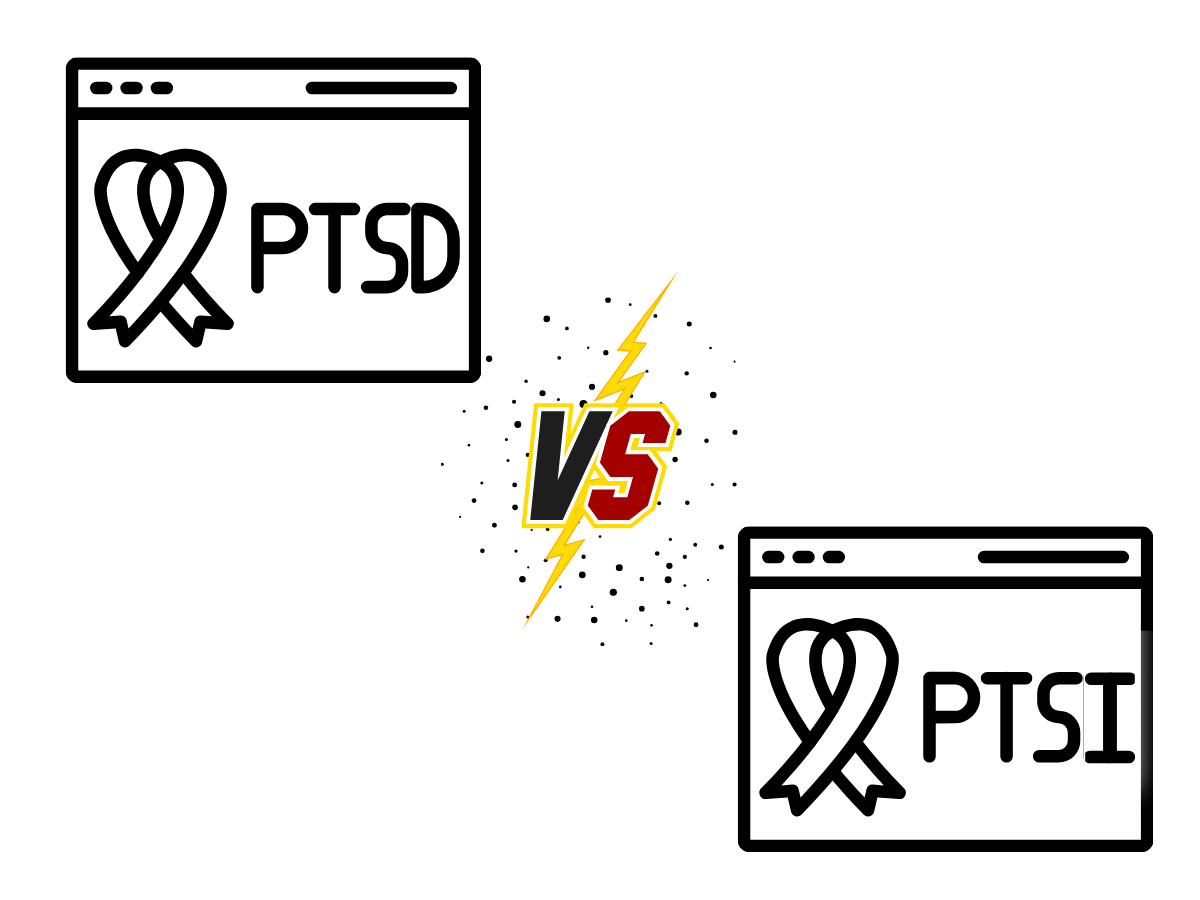Disorder or Injury? Arguments for and Against Changing the Name of PTSD
For the past decade there has been much debate on the name of Post Traumatic Stress Disorder (PTSD). Some say that we should keep it to PTSD, whereas others are saying we need to update and officially change the name to Post Traumatic Stress Injury (PTSI). We were interested in seeing arguments from both sides, and have compiled them in this article.
For Changing PTSD to PTSI
Some people are hoping to change the name of this disorder in order to eliminate the stigma that is sometimes associated with it. Those proposing changing the last word from Disorder to Injury say it can reframe the way post-traumatic stress is perceived. By calling it an injury, there is more emphasis on healing (with the right care) instead of a sentence to life with a disorder.
In the May 2023 edition of the Cureus Academic Journal, Dr. Eugene Lipov shared the findings of an anonymous survey that was sent to 3,000 adults who utilized the Stella Center, a mental health clinic in Chicago, Illinois. An additional 1,500 invitations were sent to those who visited the Center’s website. A total of 1,025 people answered the survey, and the results showed that ⅔ of the people who responded believed that changing the name from PTSD to PTSI would reduce the stigma associated with PTSD. More than half of those who answered also confided that they would be more likely to feel comfortable seeking help if the name of PTSD changed.
ItsPTSI.com, a campaign aimed at having medical and government bodies recognize the condition as an injury rather than a disorder, explained that advanced imaging technology, such as fMRI and PET scans, can detect any physical changes to the brain after an individual experiences post-traumatic stress. They list a few findings in studies that show a physical alteration of spaces in the brain such as a reduction in volume of the hippocampus, changes in the structure of the amygdala, and alterations in the prefrontal cortex. The campaign believes that post-traumatic stress should be considered an injury because these changes to the brain are physical.
For Keeping the Name PTSD
An academic article from The Journal of Military and Veterans’ Health argues against the name change. They question it because other mental disorders (like social anxiety disorder, adjustment disorder, and major depressive disorder) do not have big debates about changing the name because of stigma. In their article, they explore a review, titled “The role and importance of the D in PTSD”, conducted by Fisher and Snell in 2013. In this review, the authors found no known studies that demonstrated that stigma of PTSD reduced the use of treatment for it. Fisher and Snell argue that naming PTSD as such provides a common language use that is understood by health and educational communities. Additionally, they argue that the word “disorder” implies that treatment can be beneficial. Lastly, they also say that a PTSD diagnosis from the Diagnostic and Statistical Manual of Mental Disorders (DSM) helps individuals like veterans receive benefits to help with the financial impact that the disorder can have.
Dr. Matthew Friedman, who in 2012 was on the committee in charge of updating the trauma section of the DSM, says a name change like this would cause confusion. He believes the change would “tinker with a psychiatric diagnosis’’ and “would accomplish nothing positive”. When talking about military veterans, Dr. Friedman says that the military should provide more help to soldiers with PTSD rather than waste time on a name change. He applauded the way the Canadian military has aided their soldiers with PTSD through peer counselling and education campaigns. He also said this positive approach was done without changing PTSD to PTSI. He expressed that we should “keep the PTSD diagnostic term and have it regarded as an injury” rather than change its name.
What do you think? Should PTSD be changed to PTSI? Do you think it will encourage people to seek the help they need? Email info@amiquebec.org with your thoughts.
Find help: amiquebec.org/PTSD.
–Gabrielle Lesage
From Share & Care Fall 2025
Don’t miss our updates! Click here to sign up for our emails
Please also follow us on

